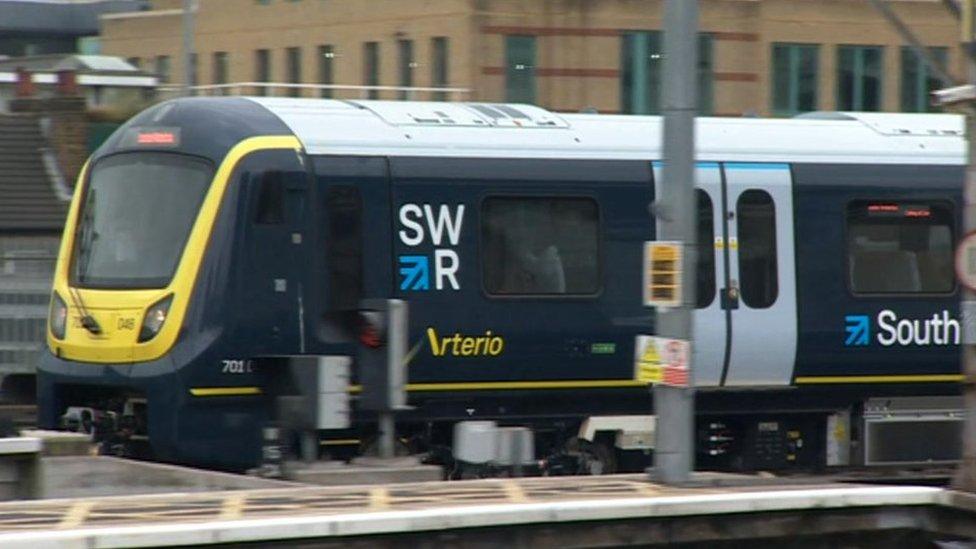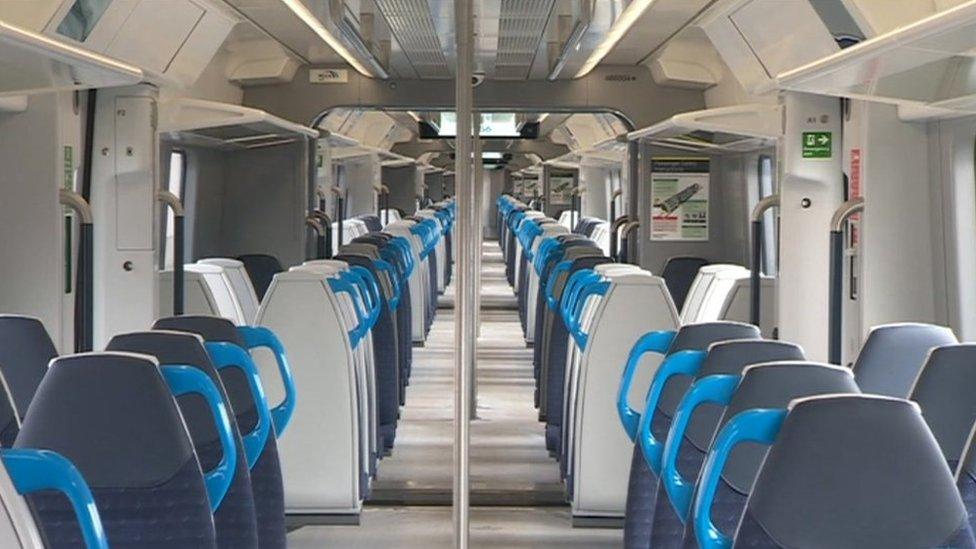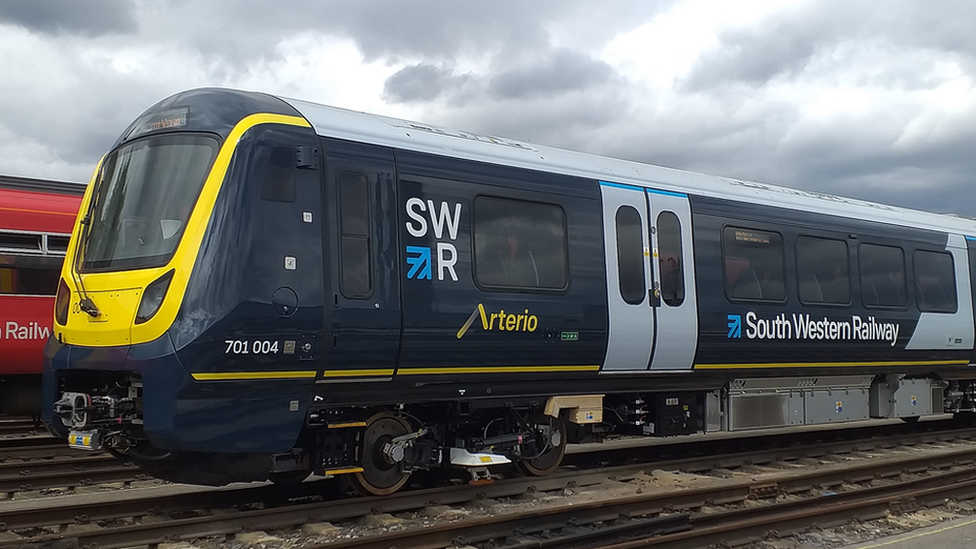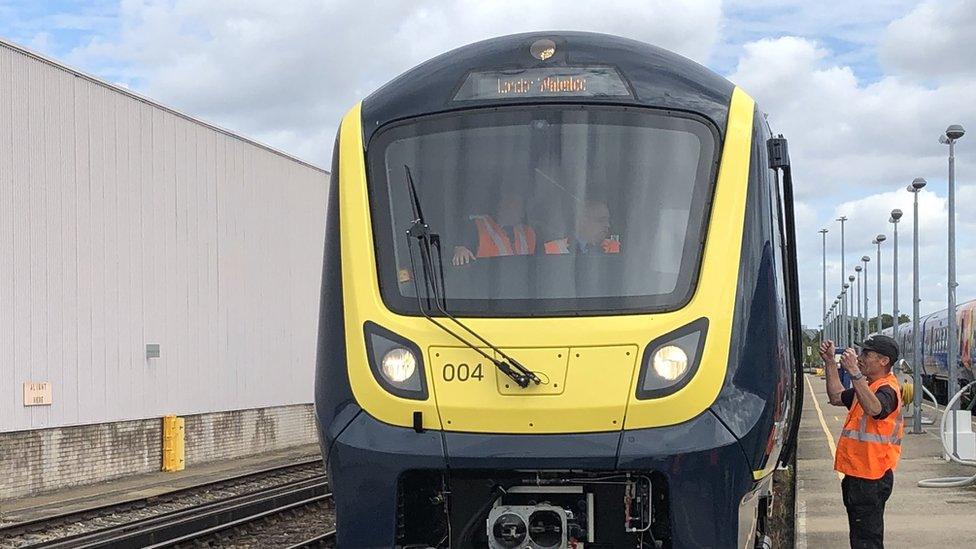First of £1bn Arterio trains set to be four years late
- Published

The new Arterio train fleet had been due to enter service in 2019
The first of a £1bn fleet of trains will not enter service until the end of 2023 - four years behind schedule, the BBC understands.
The high-capacity Arterio trains were initially due to run from December 2019 on South Western Railway (SWR) routes to Reading and Windsor in Berkshire.
Of the 90 Class 701 trains ordered, only 54 have been delivered so far, with only 42 accepted as suitable.
The four-year delay has been blamed on the pandemic and software issues.
Last December, the Department for Transport stated the trains - built by Alstom in Derby - would be in service "as soon as possible in 2023".
SWR said the delay was partly due to the impact of Covid-19. However, it acknowledged serious issues with the trains' software.
The train drivers' union ASLEF previously reported problems with door obstacle detectors, as well as the coupling process, faulty windscreen wipers and cab doors that were difficult to open.

The trains are designed to hold more passengers, South Western Railway said
However, mechanically similar trains are working effectively on the Elizabeth Line, on London Overground and elsewhere.
The Arterios are currently being stored at empty sidings including at Long Marston, Eastleigh and Marchwood.
SWR has not yet committed to a date when they will actually enter service but the BBC understands it will be December at the earliest.
The trains are intended to first run on Reading and Windsor lines, before extending to the entire SWR suburban network in south west London.
'Increasingly confident'
Gregg Evans, of SWR, said: "Covid had a big impact on the overall supply chain and ultimately the delivery of the trains to us.
"All rolling stock projects are extremely complex and there are a lot of steps to go through, but we are progressing through them.
"So yes, it's late, but we are increasingly confident that we will get these in front of our customers as soon as possible this year."
SWR previously said the new trains would carry more people and reduce journey times.
Mr Evans said 50 depot drivers have begun training on simulators, which he described as a "really important milestone" for the project.
None of the operator's 768 mainline drivers have yet started training to use the new trains.

Follow BBC South on Facebook, external, Twitter, external, or Instagram, external. Send your story ideas to south.newsonline@bbc.co.uk, external.
Related topics
- Published13 December 2022

- Published22 January 2021
